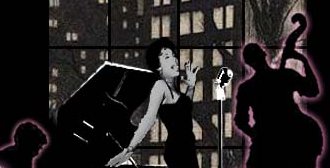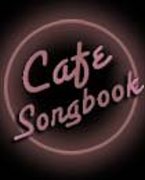Welcome toCafe SongbookInternet Home of the |
 |
 |
| Home || Songs || Songwriters || Performers || Articles and Blogs || Glossary || About Cafe Songbook || Contact/Submit Comment | |
| Search Tips: 1) Click "Find on This Page" button to activate page search box. 2) When searching for a name (e.g. a songwriter), enter last name only. 3) When searching for a song title on the catalog page, omit an initial "The" or "A". 4) more search tips. | |
Arthur Freed |
||
|
Basic InformationBorn: Arthur Grossman, September 9, 1894, Charleston, South Carolina Died: April 12, 1973 (age 78), Los Angeles, California Primary songwriting role: lyricist; also, movie producer, brother to Ralph Freed Co-writers: chiefly Nacio Herb Brown -- plus Gus Arnheim, Al Hoffman, and Harry Warren. |
|
Overview and Commentary: |
|||
|
Although Arthur Freed created an impressive catalog of songs as a lyricist, he became even better known as a producer of movie musicals at MGM, eventurally heading up The Freed Unit. It was from him and out of the MGM division that bore his name, that the great MGM musicals such as The Wizard of Oz, Babes on Broadway, Cabin in the Sky, Meet me in St. Louis, Easter Parade, Singin' in the Rain, An American in Paris, Gigi (the last two both being Oscar winners) and many other landmark musical films came. By the way, the title song for Singin' in the Rain was written by Freed and his most important songwriting collaborator, Nacio Herb Brown, almost twenty-five years before the movie came out when they were a songwriting team in Los Angeles -- even before they were hired by MGM. Once Brown and Freed came to work on the MGM lot, they wrote the songs for musicals such as The Broadway Melody (1929),Broadway Melody of 1936 and Broadway Melody of 1938, Hollywood Revue (1929) and Going Hollywood (1932). As Hugh Fordin, in his book MGM's Greatest Musicals: The Arthur Freed Unit put it, "On the sound stages he watched his songs being staged, rehearsed and photographed. He watched intently, absorbed much and leared a great deal" (Fordin, p. 1). When in 1952 the Freed Unit undertook Singin' in the Rain, Freed pulled the title song out of his trunk along with "All I Do Is Dream of You" and others he and Brown had written years before because they came from the era that coincided with the time period depicted in "Singin' in the Rain." So Freed, who lived through and left his mark on both the era the film was about and the era in which it was made, wound up breathing new life into his old songs, sending them out of that past on their and his movie's way to a future life he probably couldn't have imagined. Freed was born in Charleston South Carolina in 1894, raised in Seattle and educated at Philips Exeter Academy in New Hampshire. That his life's work took place in southern Calfiornia made him an American who lived in all four corners of the country, just as his songs and movies lived throughout the nation, and for that matter the world. His father Max Freed was a successful art dealer who along with his wife Rosa, whom Fordin describes as a "highly intelligent, articulate vibrant lady," provided their eight children with a cosmopolitan, cultured, traveled and musical upbringing. All of the children, six brothers and one sister, entered the world of music as adults with the oldest Arthur and the youngest Ralph Freed becoming lyricists. During WWI, Arthur staged musicals for the troops and afterwards was involved in vaudeville with Gus Edwards and The Marx Brothers. This led to other show business enterprises including producing his own musical revue, until he went to Hollywood eventually landing with MGM as a songwriter. Ironically as Robert Gottlieb and Robert Kimball point out, despite his enormous success as a producer, "he may be best remembered for a few of his songs, and for the movie, Singin' in the Rain, based on them." The same commentators describe his lyrics as neither "elaborate or sophisticated" but rather "high-level examples of Tin Pan Alley twenties' and thirties' style transplanted to the movies" (Reading Lyrics, p. 168). Gary Marmorstein characterizes Freed at the end of his career at MGM as that of a man who unlike most of the people he worked with during his and MGM's golden age of musicals as a figure who perhaps stayed too long: Freed hung around as movie elder, a nagging reminder that the golden era of the movie musical had passed. . . . He died in April 1973, two months after his younger brother Ralph [The lyricist who wrote "How About You"] Say it with Music, Freed's long-time pet project built around Irving Berlin's song catalog, remained unfilmed. It was the era of the independent writer-director, as well as the rock 'n' roll soundtrack, and the Arthur Freed brand of musical was widely regarded as quaint. (Gary Marmorstein, Hollywood Rhapsody: Movie Music and Its Makers, 1900-1975, pp. 273-274, hard cover Ed.). |
||
|
Marmorstein describes Freed's lyrics as more of a foreshadow of his role as a studio exectuive:
As a producer Marmorstein draws Freed as an aloof man but very distinctly no-nonsense. He quotes various colleagues who knew Freed at work describing him as wearing armor, and "very closed," and as an overseer of other people's writing he was "an intuitive and merciless editor who wasn't inlcined to wrestle with complexity." He knew what he liked and what he didn't, "possessed a keen and an unerring eye" "and . . . wasn't impressed by celebrity though he openly admired talent." Marmorstein captures a sense of Freed's presence at MGM when he writes:
(Marmorstein, pp. 241-244, 273, hard cover Ed.) |
||
(1961/1963)
notes: Recorded live at Carnegie Hall, New York City, April 23, 1961. (includes a live recording of "Zing Went the Strings of My Heart" but obviously not that first audition from 1935.) |
Judy Garland's career famously began when she auditioned for Arthur Freed at MGM in September, 1935 with her father, Frank Gumm as her accompanist. When she had barely started, Freed interrupted the audition instructing Roger Edens (one of the most important music people at the studio) to replace Mr. Gumm whispering, "that guy is the worst piano player I ever heard, Roger go over and do a song with the little girl." Judy then sang, "Zing Went the Strings of My Heart." Freed and Edens were so astonished that they ran across the MGM lot to Louis B. Mayer's office, bypassed his secretary to grab him and drag him back to the sound stage to listen. After Garland had sung several more songs," Hugh Fordin tells us, "Mayer had tears in his eyes. Freed walked back with him to his office. 'What did I tell you boss? She's going to be a big star!'" (Fordin, p. 5). | ||
 The Wizard of Oz (Two-Disc 70th Anniversary Edition) |
When Arthur Freed had settled most of the initial matters concerning the script for The Wizard of Oz (1938-1939), he turned his attention to the score for which he had not yet even selected the songwriters. He had spoken to Jerome Kern who was a close friend and interested in the project and who most likely would have worked with Dorothy Fields for the lyrics, but they were not to be chosen. As Hugh Fordin notes, it was Freed's constant need to reach for "the best" that caused him to look elsewhere for his songwriting team. This didn't mean, of course, that Kern and Fields were not good enough for him but that he "became convinced that the style of Harold Arlen and Yip Harburg had the right sparkle and lightness for this story," that they would be best for this movie. He kept thinking of a song they had written for their 1937 Broadway collaboration, Hooray for What! The song was "In the Shade of the New Apple Tree," which Freed, a world-class songwriter himself, thought of as "fanciful and beguiling, yet unsentimental," and it was those qualities of that song that led Freed to hire Arlen and Harburg instead of Kern and Fields to write the songs for The Wizard of Oz. (Fordin, MGM, p. 13.) Ed.'s note: Hooray for What! had more of an effect on The Wizard of Oz than just including the song that made Freed choose Arlen and Harburg. The melody for The Wizard of Oz song "If I Only Had a Brain / a Heart / The Nerve" was originally written by Arlen for Hooray for What!, with the Harburg title "I'm Hanging On to You" and a completely different lyric. The song was dropped from that show, but Harburg gave it a new lyric and it was added to The Wizard of Oz as "If I Only Had a . . ." |
||
| back to top of page | |||
Cafe Songbook |
|
|
The Arthur Freed/ Nacio Herb Brown song "All I Do Is Dream of You" was written for Sadie McKee |
Bing Crosby sings "Temptation" (music by Nacio Herb Brown, lyrics by Arthur Freed) from the 1933 movie "Going Hollywood." |
|
| To catch Arthur Freed receiving the Oscar for best picture (Gigi) in 1959, watch (at YouTube) Jerry Lewis introduce Cary Grant who introduces Ingrid Bergman who presents the award to Mr. Freed.) | |
| back to top of page | |
|
|
|||||||||||
| back to top of page | ||||||||||||
Visitor CommentsSubmit comments on songs, songwriters, performers, etc.
Feel free to suggest an addition or correction. Please read our Comments Guidelines before making a submission. (Posting of comments is subject to the guidelines. Not all comments will be posted.) |
| To submit a comment, click here. |
Posted Comments on Arthur Freed:
No comments as yet posted |
| back to top of page |
Credits(this page) |
Credits for Videomakers of videos used on this page:
Borrowed material (text): The sources of all quoted and paraphrased text are cited. Such content is used under the rules of fair use to further the educational objectives of CafeSongbook.com. CafeSongbook.com makes no claims to rights of any kind in this content or the sources from which it comes.
Borrowed material (images): Images of CD, DVD, book and similar product covers are used courtesy of either Amazon.com
Any other images that appear on CafeSongbook.com pages are either in the public domain or appear through the specific permission of their owners. Such permission will be acknowledged in this space on the page where the image is used.
For further information on Cafe Songbook policies with regard to the above matters, see our "About Cafe Songbook" page (link at top and bottom of every page). |
| Home || Songs || Songwriters || Performers || Articles and Blogs || Glossary || About Cafe Songbook || Contact/Submit Comment | |
© 2009-2018 by CafeSongbook.com -- All Rights Reserved |





